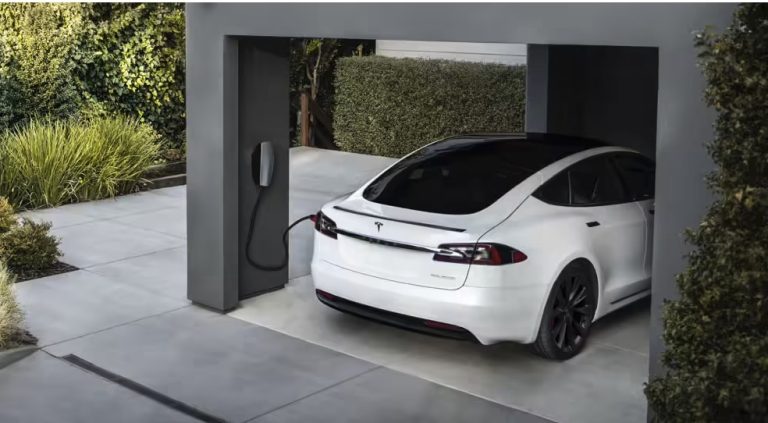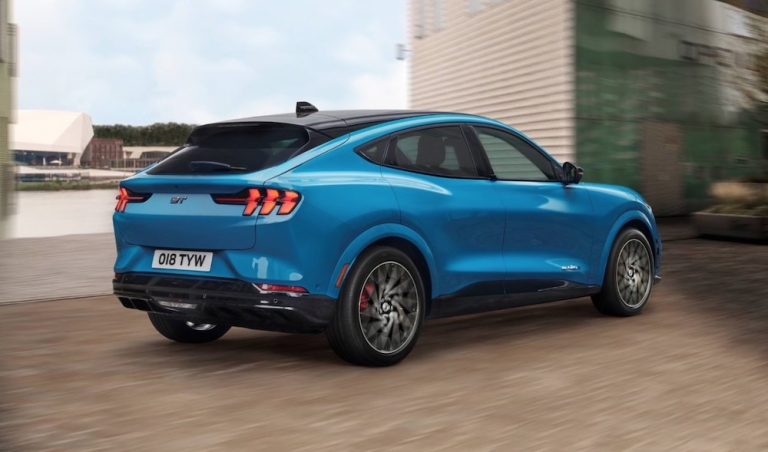Electric Cars: The Basics
For those of you new to zero-emission electric driving, we recommend a read of the following articles:
Sign up to the e-zoomed Electric Living newsletter
The All-Electric Skoda ENYAQ Coupé iV
Skoda Auto a.s., more commonly referred to as Skoda, is headquartered in the Czech Republic. The founders of Škoda, Václav Laurin and Václav Klement were initially involved with the manufacturing of bicycles and motorcycles. In due course they progressed to trucks and eventually to cars, establishing Skoda in 1925. The company currently has the following battery-electric vehicles (BEVs) and plug-in hybrid electric vehicles (PHEVs):
- All-electric Skoda ENYAQ iV
- All-electric Skoda ENYAQ Coupé iV
- All-electric Skoda Elroq
- Skoda OCTAVIA iV Plug-In Hybrid Estate
- Skoda OCTAVIA Plug-In Hybrid Hatch
- Skoda SUPERB iV Plug-In Hybrid Hatch
- Skoda SUPERB iV Plug-In Hybrid Estate
The Skoda ENYAQ iV is Skoda’s first pure electric SUV and second battery-electric vehicle (BEV). The EV uses the Volkswagen Group’s MEB EV platform (the Volkswagen all-electric ID.3 uses the same platform). The nameplate has been derived from the Irish name ‘Enya’, which means ‘source of life’. The ‘E’ refers to electromobility and the ‘Q’ characterising the final letters of SKODA’s SUV family.
Without an iota of doubt, the Skoda Enyaq electric SUV has much to offer families and company-car drivers keen to migrate to electric driving. The EV is available as a conventional SUV body style and also as a coupé-SUV body style.
The key difference between the tradition SUV and the Coupé-SUV, is the sloping roof at the rear of the electric vehicle (EV). The Enyaq Coupé has a slightly lower height. The Coupé is more suitable for consumers seeking a sportier exterior styling, while the traditional SUV is more appropriate for consumers keen on interior space and practicality. The rear headroom in the Coupé is impacted by the more aggressive exterior styling.
The ENYAQ Coupé EV is available in one EV battery size (82 kWh), with a claimed pure electric range up to 502 km (WLTP). Even adjusting for real-world driving conditions, the EV should be able to deliver over 425 km on a fully charged EV battery. More than adequate for city and longer distance motorway driving.
The Skoda Enyaq EV incorporates a single-phase (7.2 KW AC) onboard charger as standard. Given that the majority of homes in Ireland have single-phase power supply, the single-phase onboard charger is appropriate. The EV can be fully charged in 13 hours using a dedicated residential EV charger like myenergi zappi. Though the electric car can be charged via a domestic 3-PIN socket, we at e-zoomed discourage the use of a domestic socket to charge an electric car.
We at e-zoomed recommend charging overnight when the electricity prices are lower. We also recommend charging on a regular basis. This way charging times are reduced and regular charging is good for the long-term maintenance of the onboard EV battery. Skoda offers a 8 years/ 160,000 km warranty. The Skoda ENYAQ Coupé iV also offers DC charging capability up to 135 kW DC. The EV battery can be charged 10%-80% in 36 minutes. Just enough time for a short motorway break.
For those with access to only 50 kW DC charging, the 82 kWh EV battery will take up to 70 minutes to achieve a 80% charge. Though these DC charging speeds are adequate, it is worth noting that some of the newer pure electric cars are offering even faster DC charging capability.
The manufacturer offers the following features and technology. Some as standard, others as options: adaptive cruise control with traffic jam assist, blind spot detection, lane assist, rear view camera, keyless entry and start/stop system, tri-zone climate control, panoramic glass roof and more.
The Skoda Enyaq Coupé all-wheel drive (AWD) achieves 0-100 km/h in 6.2 seconds (max power: 299 PS/ torque: 460 Nm). The top speed of the EV is 160 km/h. Of course, the electric car also benefits from instant torque.
Bottom-line, electric driving is good for the environment and the wallet!
| PROS | CONS |
|---|---|
| Attractive exterior coupé styling | Onboard charger limited to single-phase (7.2 kW) |
| Good pure electric range | Rear headroom impacted by sloping roof |
| All-wheel drive as standard | DC charging limited to 135 kW |
The All-Electric Skoda ENYAQ iV Coupé (credit: Skoda)
| At A Glance | |
|---|---|
| EV Type: | Battery-Electric Vehicle (BEV) |
| Body Type: | Coupé-SUV |
| Engine: | Electric |
| Available In Ireland: | Yes |
| Variants (2 Options) |
|---|
| Skoda ENYAQ Coupé Sportline iV (from € 63,925) |
| Skoda ENYAQ Coupé RS iV (from € 74,295) |
| EV Battery & Emissions | |
|---|---|
| EV Battery Type: | Lithium-ion |
| EV Battery Capacity: | Available in one battery size: 82 kWh |
| Charging: | 135 kW DC Rapid Charging (10%-80%: 36 mins). Onboard charger: 7.2 kW AC (0%-100%: 13 hrs) |
| Charge Port: | Type 2 |
| EV Cable Type: | Type 2 |
| Tailpipe Emissions: | 0g (CO2/km) |
| Warranty: | 8 years or 160,000 km |
| Average Cost Of Residential Charging | |
|---|---|
| Battery net capacity: 16.7 kWh | € 4.00 |
| Battery net capacity: 30.0 kWh | € 7.19 |
| Battery net capacity: 39.2 kWh | € 9.39 |
| Battery net capacity: 45.0 kWh | € 10.78 |
| Battery net capacity: 50.0 kWh | € 11.98 |
| Battery net capacity: 64.0 kWh | € 15.34 |
| Battery net capacity: 71.0 kWh | € 17.01 |
| Battery net capacity: 77.0 kWh | € 18.45 |
| Battery net capacity: 90.0 kWh | € 21.57 |
| Battery net capacity: 100.0 kWh | € 23.97 |
- Note 1: The average cost of residential electricity in Ireland varies depending on the region, supplier and type of energy used. An average for Ireland is 23.97 cents/kWh.
- Note 2: Not all EV manufactures make available the data on net EV battery capacity, and in a number of instances the EV battery capacity advertised, does not state if it is gross or net capacity. In general, usable EV battery capacity is between 85% to 95% of the gross available capacity.
| Charging Times (Overview) | |
|---|---|
| Slow charging AC (3 kW – 3.6 kW): | 6 – 12 hours (dependent on size of EV battery & SOC) |
| Fast charging AC (7 kW – 22 kW): | 3 – 8 hours (dependent on size of EV battery & SoC) |
| Rapid charging AC (43 kW): | 0-80%: 20 mins to 60 mins (dependent on size of EV battery & SoC) |
| Rapid charging DC (50 kW+): | 0-80%: 20 mins to 60 mins (dependent on size of EV battery & SoC) |
| Ultra rapid charging DC (150 kW+): | 0-80% : 20 mins to 40 mins (dependent on size of EV battery & SoC) |
| Tesla Supercharger (120 kW – 250 kW): | 0-80%: up to 25 mins (dependent on size of EV battery & SoC) |
- Note 1: SoC: state of charge
| Dimensions | |
|---|---|
| Height (mm): | 1607 |
| Width (mm): | 1879 |
| Length (mm): | 4653 |
| Wheelbase (mm): | 2768 |
| Turning Circle (m): | 9.3 |
| Boot Capacity (L): | 570 |
| ENYAQ Coupé iV | |
|---|---|
| EV Battery Capacity: | 82 kWh |
| Pure Electric Range (WLTP): | 502 km |
| Electric Energy Consumption (Wh/km): | 153 |
| Charging: | 135 kW DC Rapid Charging (10%-80%: 36 mins). Onboard charger: 7.2 kW AC (0%-100%: 13 hrs) |
| Top Speed: | 160 km/h |
| 0-100 km/h: | 6.2 seconds |
| Drive: | All-wheel drive (AWD) |
| Electric Motor (kW): | 220 |
| Max Power (PS): | 299 |
| Torque (Nm): | 460 |
| Transmission: | Automatic |
| Seats: | 5 |
| Doors: | 5 |
| Total Vehicle Weight (kg): | 2,750 |
| Colours: | 8 |
| NCAP Safety Rating: | Five-Star |
Longest Range Pure Electric Cars: Top 5
The electric driving sector has certainly witnessed significant progress in relation to electric range, for both, battery-electric vehicles (BEVs) and plug-in hybrid electric vehicles (PHEVs). Historically, range anxiety has been an impediment for consumers keen to migrate to electric cars, in particular, pure electric cars.
Though range anxiety has been a valid concern, in our view, it had been over-exaggerated. Do keep in mind that most day-to-day driving involves short journeys i.e. school runs, travel to work, local high street, gym, grocery store etc. How many times in a month do we really travel long distances?
In any case, with the latest-generation of pure electric cars, there is ample e-range for both short and long-distance motorway journeys. In fact, the latest-generation of pure electric cars offer a real-world range over 500 km on a single charge. Some of these EVs can travel from the North to the South of Ireland on a single-charge! The longest range electric car on our list below is the all-electric Mercedes-Benz EQS saloon with a WLTP claimed range up to 729 km.
Several factors have contributed to the improvement in emission-free electric range. Some of these include: increase in size of the onboard EV battery, improvements in the EV battery management, sleeker aerodynamics, lower vehicle weight and overall improvement in vehicle efficiency. We can expect this trend to continue, as automotive manufacturers labour to further improve the efficiency of electric vehicles and ultimately electric range.
It is also worth noting, that not all automotive manufacturers aspire for the largest onboard EV battery or the longest electric range. Many electric cars, like the all-electric Honda-e have been developed primarily to target the needs of urban drivers, who travel short distances. Of course, even for such electric cars, automotive manufacturers continue to seek improvements in vehicle efficiency and e-range.
| Brand/ Model | Battery Size (kWh) | Electric Range (WLTP) | Body Type | Battery Warranty |
|---|---|---|---|---|
| Mercedes-Benz EQS | 108.4 kWh | 729 km | Saloon | 8 years or 160,000 km |
| BMW i7 | 105.7 kWh | 622 km | Saloon | 8 years or 160,000 km |
| Mercedes-Benz EQE | 90.6 kWh | 617 km | Saloon | 8 years or 160,000 km |
| Polestar 3 | 111 kWh | 610 km | SUV | 8 years or 160,000 km |
| Ford Mustang Mach-E | 98 kWh | 600 km | SUV | 8 years or 160,000 km |
While e-zoomed uses reasonable efforts to provide accurate and up-to-date information, some of the information provided is gathered from third parties and has not been independently verified by e-zoomed. While the information from the third party sources is believed to be reliable, no warranty, express or implied, is made by e-zoomed regarding the accuracy, adequacy, completeness, legality, reliability or usefulness of any information. This disclaimer applies to both isolated and aggregate uses of this information.






























